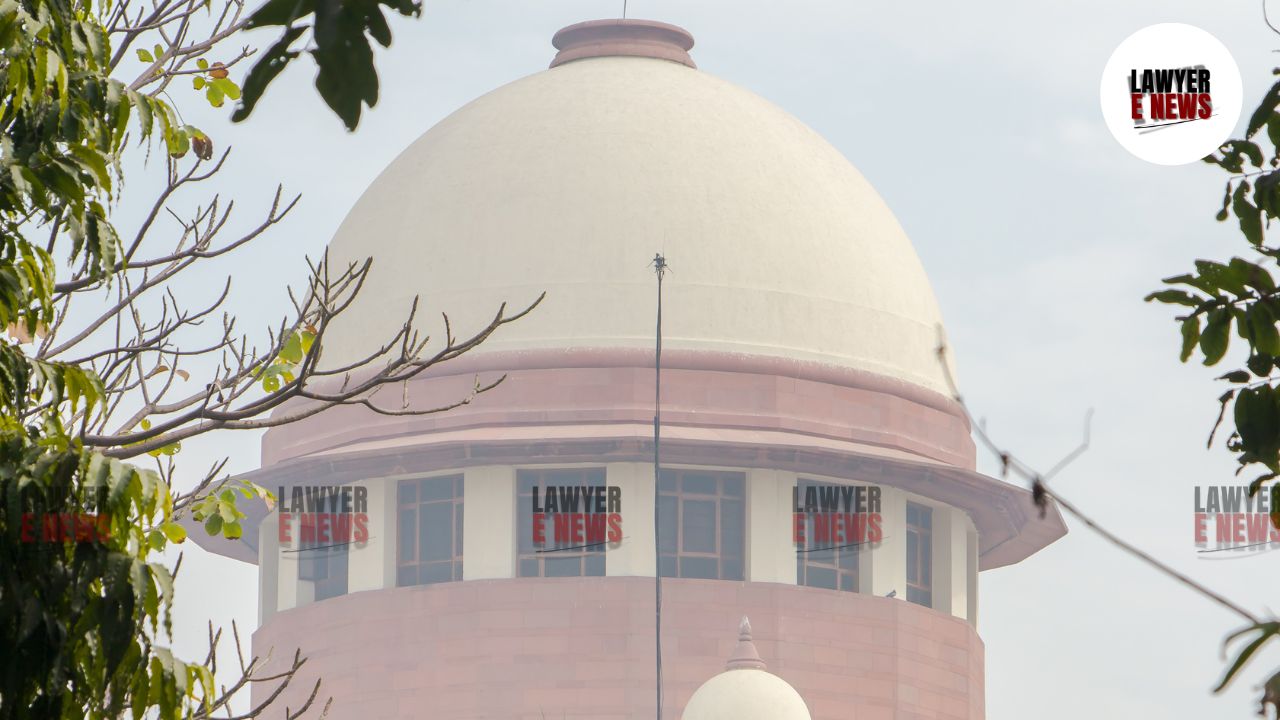-
by Admin
15 February 2026 2:16 AM



“The appellant had no previous criminal record, and the possibility of reformation cannot be ruled out, thus negating the necessity of a death sentence.” – Supreme Court On October 16, 2024, the Supreme Court of India commuted the death sentence of Eknath Kisan Kumbharkar, convicted for murdering his pregnant daughter, to life imprisonment without remission for 20 years. The decision was delivered by a bench comprising Justices B.R. Gavai, Aravind Kumar, and K.V. Viswanathan, in Eknath Kisan Kumbharkar v. State of Maharashtra.
The appellant, Eknath Kisan Kumbharkar, was charged with the murder of his daughter, Pramila, in 2013. The crime was committed following her inter-caste marriage, which reportedly brought dishonor to Kumbharkar. Pramila was nine months pregnant at the time of her death. The case had previously been heard by the Bombay High Court, which upheld the death sentence issued by the Trial Court for offenses under Sections 302 (murder), 316 (causing death of a quick unborn child), and 364 (kidnapping or abduction) of the Indian Penal Code (IPC).
The core issue was whether the death penalty was the appropriate sentence for Kumbharkar, given the circumstances of the crime and his personal background. The defense, led by Senior Counsel Dr. Aditya Sondhi, argued that the motive for the crime was not sufficiently proven, and raised doubts regarding the reliability of the prosecution's witnesses. The prosecution, on the other hand, argued that the crime was committed in cold blood and amounted to an honor killing, making it one of the "rarest of rare" cases that warranted the death penalty.
The Court found that Kumbharkar had indeed strangled his daughter with a rope, as testified by an eyewitness, PW-2. The Court further noted that the testimony of PW-1 (the appellant’s wife) corroborated the motive—Kumbharkar’s resentment towards his daughter for marrying outside their caste.
While the defense raised several arguments regarding inconsistencies in the testimonies of key witnesses and the non-examination of independent witnesses, the Court rejected these claims, stating that the inconsistencies were minor and did not affect the core facts of the case.
The Court took into account several mitigating factors, including Kumbharkar's socio-economic background, his lack of prior criminal record, and the psychological evaluations conducted during his time in prison. Reports indicated that Kumbharkar came from a poor, nomadic community, had been a victim of parental neglect, and had worked from a young age to support his family. The Court also noted that he had suffered a stroke while in prison, which left him with cognitive impairments and speech issues.
Given these factors, the Court ruled that this was not a case that warranted the death penalty. Instead, the death sentence was commuted to life imprisonment, with the condition that Kumbharkar would serve 20 years of rigorous imprisonment without the possibility of remission.
The Supreme Court, in commuting the death penalty to a fixed term of imprisonment, emphasized the importance of reformation and rehabilitation, particularly in cases where the accused has no previous criminal record. The Court upheld the conviction under Sections 302, 316, and 364 of the IPC, but adjusted the sentence in line with the mitigating circumstances.
Date of Decision: October 16, 2024
Eknath Kisan Kumbharkar v. State of Maharashtra.
